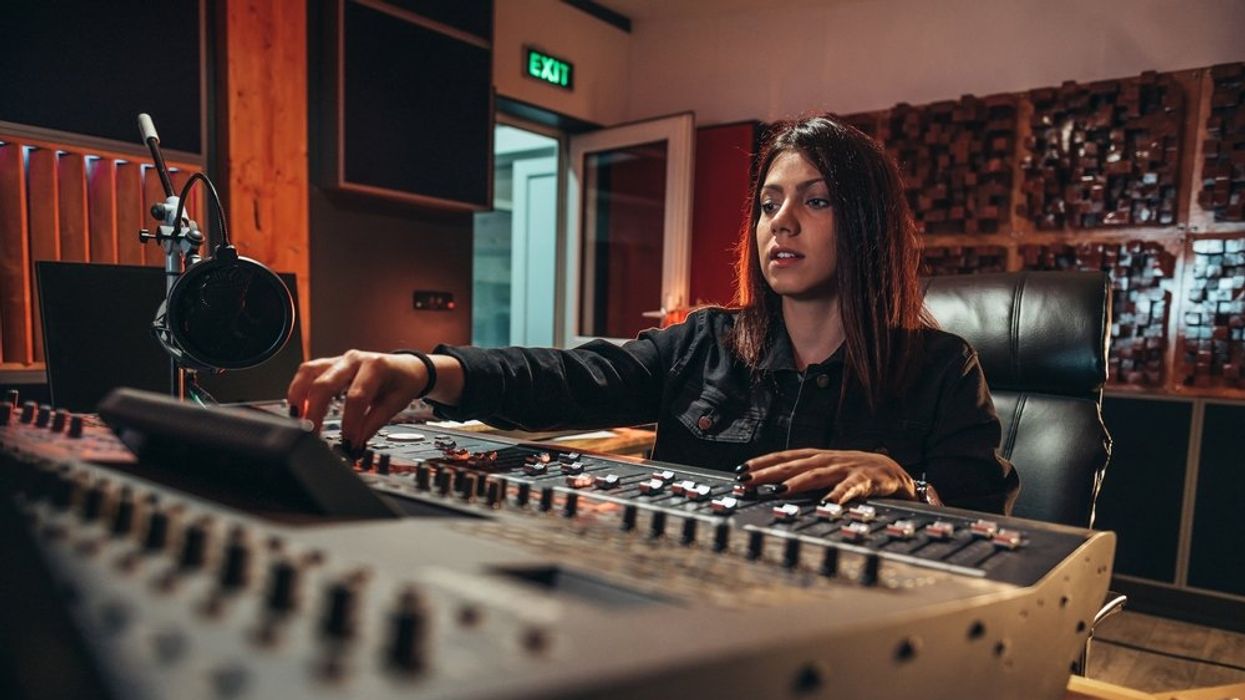Women and nonbinary people are “vastly underrepresented” in 2022’s most popular songs, according to a new study titled Lost in the Mix.
In annual Fix the Mix report is “the first major study of gender representation across all credited production and engineering personnel by role,” compiled each year by Howard University and Middle Tennessee State University in tandem with advocacy organization We Are Moving the Needle and database Jaxsta.
Researchers analyzed the top 50 songs from 2022 in 14 separate genres — 757 in total. They found that women and nonbinary people account for less than 5 percent of producing and engineering credits at 187 out of 3,781.
The report explored the top ten most streamed songs along major digital streaming platforms (DSPs) Spotify, Apple Music, Amazon Music, YouTube, and TikTok. Out of 36 unique entries, 16 out of 240 tech credits were women or nonbinary creators, a sharp decline from 2021. The authors say that the shift could imply “a growing pipeline of these contributors rising into key levels,” and that it is “indicative of a glass ceiling preventing this demographic from an upward trajectory.”
The lowest percentages of women and nonbinary people credited by genre were found in metal (0.0 percent), rap (0.7 percent), and Christian and gospel at (0.8 percent). Electronic had the highest at 17.6 percent, with Americana just behind at 16.4 percent. The song with the most credits for women and nonbinary producers was Beyoncé’s “Cuff It,” with six out of nineteen total tech credits.
This does not reflect the growing number of women and nonbinary people entering the field, as the study reads: Women and nonbinary professionals are entering the audio production industry in greater numbers than in years past. Regardless of this increase in the pipeline, this study shows that women and non-binary people are simply not being hired after they earn audio production degrees or complete the necessary qualifications for credited roles.”
Grammy Award–winning mastering engineer and We Are Moving the Needle founder Emily Lazar co-authored the study, saying via Pitchfork that it “confirms what I’ve known after spending decades behind the board in the recording studio — women are not being given the same opportunities as men in production and engineering roles.”
“Ensuring that there is more gender and racial diversity among music’s creators is not actually a complex problem if you want to solve it. The most important step is for artists and record labels to be able to hire from a more diverse pool of producers, mixers and engineers, but it’s exceedingly hard to hire people when you can’t find them," she said. “We hope this report will give decision makers the motivation and tools they need to make real change in their hiring practices so we can achieve gender parity in production, engineering, and mastering roles.”
- LGBTQ+ Representation in Movies Decreases, Report Finds ›
- Mae Martin Talks New Netflix Special 'SAP' & Nonbinary Representation ›
- 'Gatsby' Author Jeremy Holt on Queer Literature & Nonbinary Visibility | AdvocateChannel.com ›
- Rock & Roll Hall of Fame Ousts Co-Founder For Comments on Black and Women Musicians ›


















































